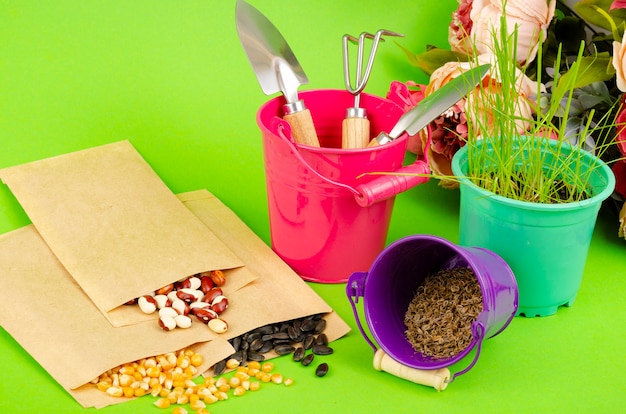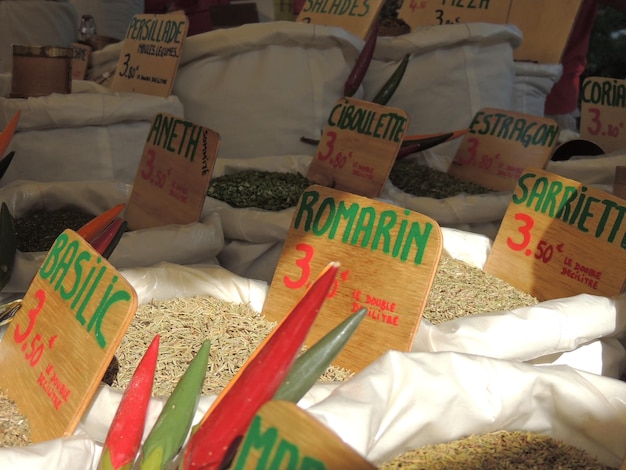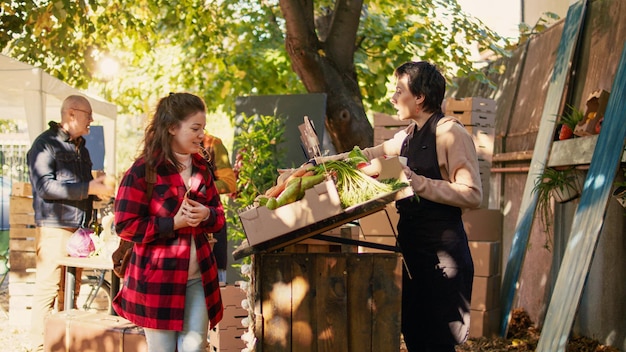Get Free Seeds: Your Guide to Free Seed Packets This Spring

Free seeds can be obtained through various programs, seed libraries, and promotional offers, allowing gardeners to start planting without the initial cost of purchasing seeds, fostering community gardening and sustainable practices.
Looking to start a garden but don’t want to break the bank? Getting free seeds is easier than you think! With a little research and effort, you can find various opportunities to snag free seed packets and start planting this spring.
Where to Find Free Seed Packets This Spring
Finding free seed packets this spring doesn’t have to be a chore. Numerous organizations and initiatives are dedicated to promoting gardening and making seeds accessible to everyone, regardless of their budget. Here are some top places to look for free seeds, ensuring you can start your garden affordably.
Local Seed Libraries
Seed libraries are community hubs where gardeners can borrow seeds, grow plants, and then return a portion of the seeds from those plants back to the library. This promotes seed saving, local adaptation, and community sharing.
Community Gardens
Many community gardens offer free seeds to their members or to the public during special events. Community gardens are great resources for learning about gardening and connecting with other enthusiasts.

- Check community centers: Some local community centers might host seed swaps or offer free seeds.
- Visit local libraries: Visit your local library. Many libraries now have seed libraries.
- Connect with gardening clubs: Join local gardening clubs. Clubs usually organize events which include the distribution of free seeds.
By leveraging these local resources, you can gain access to a variety of seeds and enrich your gardening experience. Seed libraries, community gardens, and local events are excellent starting points.
Online Resources for Free Seeds
The internet offers a wealth of opportunities to get free seeds, from company promotions to online seed exchanges. Taking advantage of these online resources can greatly expand your options and help you find the specific seeds you need for your garden.
Company Promotions
Keep an eye on seed companies and gardening-related businesses, as they often run promotions where they give away free seeds. These promotions can be a great way to try new varieties or get seeds for common garden plants.
Seed Exchange Websites
Websites dedicated to seed exchanges or swaps allow gardeners to connect with each other and trade seeds. This can be a cost-effective way to get a variety of seeds and discover unique varieties.
- Join Facebook groups: Join gardening groups on social media. Quite often members offer free seeds.
- Subscribe to newsletters: Sign up for email lists from seed companies. This is a solid way to be notified about promotions.
- Participate in online forums: Engage in online gardening forums. Active members will usually share seeds and tips.
Exploring online resources such as company promotions, seed exchange websites, and social media communities is a great way to expand your access to free seeds. Don’t forget to check the credibility of the source before providing personal information.
Participating in Seed Swaps and Exchanges
Seed swaps and exchanges are fantastic ways to diversify your seed collection while connecting with other gardeners. These events offer the opportunity to share your own seeds and acquire new varieties in return.
Attending Local Swaps
Local seed swaps are often organized by gardening clubs, community gardens, or local organizations. These events provide a chance to meet fellow gardeners and exchange seeds in person.
Organizing Your Own Swap
If there aren’t any seed swaps in your area, consider organizing your own. This can be a small gathering with friends or a larger event open to the public. Promoting local agriculture and biodiversity is important!

Joining swaps can be a rewarding experiences, allowing passionate gardeners to connect and share their knowledge.
Seed swaps and exchanges are invaluable for expanding your seed collection and connecting with other gardeners. Whether you attend local events or organize your own swap, these activities promote seed saving and community engagement.
Tips for Saving Your Own Seeds
Saving your own seeds is a sustainable and rewarding way to ensure you have seeds for future planting seasons. It also allows you to select plants with desirable traits and adapt them to your local environment.
By selecting your plants and preserving seeds, you can keep your garden running at zero cost.
Choosing the Right Plants
Select healthy, vigorous plants with desirable traits to save seeds from. Make sure the plants are open-pollinated varieties, as hybrid varieties may not produce true-to-type seeds.
Proper Seed Saving Techniques
Learn the proper techniques for saving seeds from different types of plants. Some seeds require specific drying or fermentation processes to ensure they are viable for future planting.
- Learn about your plants: Understanding the biology of your plant is extremely important to properly save seeds.
- Use airtight containers: Be sure that you properly store your seeds in good recipients to keep them viable.
- Keep track of everything: Make sure to label your seeds properly.
Saving your own seeds is essential for sustainable gardening. Understanding the tecniques and selecting the right plans can improve your garden.
Maximizing Your Free Seed Resources
To make the most of your free seed resources, it’s important to plan ahead and use smart gardening practices. This ensures that your free seeds result in a bountiful and successful garden.
Planning Your Garden
Before you start collecting seeds, plan your garden layout and decide which plants you want to grow. This will help you focus your efforts and select the right seeds for your needs.
Starting Seeds Indoors
Starting seeds indoors gives you a head start on the growing season and can increase your chances of success. Use seed-starting trays or small pots and provide plenty of light and warmth.
Gardening is a rewarding activity that can be done at low cost. Knowing how to collect seeds and how to plan the garden can result in a beautiful result.
Maximizing your free seed resources involves thoughtful planning and smart gardening practices. From planning your garden layout to properly caring for seedlings, these steps will help you make the most of your free seeds.
Troubleshooting Common Seed Germination Issues
Even with the best seeds, you may encounter issues with germination. Understanding the common causes of germination problems can help you troubleshoot and improve your success rate.
Poor Soil Conditions
Ensure your soil is well-draining and rich in nutrients. Compacted or nutrient-poor soil can hinder seed germination.
Incorrect Watering
Both overwatering and underwatering can prevent seeds from germinating. Keep the soil consistently moist but not waterlogged.
Germination issues happen every now and then. Being prepared with tips and tricks can save the season!
- Check the light: Light conditions need to be ideal for germination.
- Maintain Soil Quality: Compacted or nutrient-poor soil can hinder seed germination.
- Proper temperature: Ensure proper temperature for germination.
Troubleshooting common germination issues involves addressing potential problems with soil, watering, temperature, and light. With the right adjustments, you can increase your seed germination success rate.
| Key Point | Brief Description |
|---|---|
| 🌱 Local Seed Libraries | Borrow seeds and return a portion after growing. |
| 💻 Online Resources | Check company promotions and seed exchange websites. |
| 🤝 Seed Swaps | Diversify your collection and connect with gardeners. |
| 🌿 Saving Seeds | Save seeds from healthy plants to sustain your garden. |
FAQ
▼
Check your local public libraries and community centers, as many of them now host seed libraries where you can borrow and share seeds.
▼
Seed exchange websites allow gardeners to connect and trade seeds with each other. List the seeds you have available and request trades for seeds you want.
▼
Seed swaps are great for diversifying your seed collection, connecting with fellow gardeners, and learning about different plant varieties and growing techniques.
▼
Choose healthy, open-pollinated plants, allow seeds to mature fully, and dry them thoroughly before storing in a cool, dark, and dry place. Research specific techniques for each plant.
▼
Common issues include poor soil, incorrect watering, improper temperature, and lack of light. Ensure you provide optimal conditions for the specific the seeds you are growing.
Conclusion
Finding free seeds and seed packets for your garden is an achievable goal that promotes sustainable gardening practices and community engagement. By exploring local seed libraries, attending seed swaps, participating in online exchanges, and saving your own seeds, you can cultivate a thriving garden without spending a fortune.
